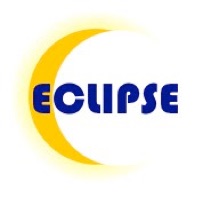Analogy involves identifying a structural parallel between two distinct things. The analog or analogue is like the target because of some structural similarity, even though the target and analogue may be quite unalike in other terms. Analogy then goes beyond simile which just proposes a similarity of some kind.
In science, analogy may be part of the creative process, as scientists may conjecture that something they are trying to understand could be like some more familiar system that is already well understood. Although such hypotheses are only hunches, they provide ideas that can then be tested.
Science relies on scientists making such imaginative leaps as well as on the logical processes by which these creative ideas are tested.
As an example: Lise Meitner and Robert Otto Frisch 'discovered' nuclear fission as an explanation for some mystifying results from Meitner collaborators when they conjectured that perhaps the atomic nucleus might behave like a liquid drop that could split into two smaller drops.
In teaching, analogy is used to help students understand something unfamiliar, by suggesting it may be similar to something familiar. However, an analogy is not a physical similarity (e.g. the buckminsterfullerene molecule is the shape of a football), but a structural similarity (the atom is like a tiny solar system because it has a relatively large central part (nucleus, cf. the sun) around which smaller parts (electrons, cf. planets) orbit.
In learning, asking students to suggest analogies offers an opportunity to use creative thinking in science. The science analogy game was an activity developed during the ASCEND project, which can be adapted for use in classes as a one-off activity, or an occasional 'ice-breaking' / mental warm-up type activity. (See examples of student-generated analogies produced by 14-15 year old students during the ASCEND project.)
Learners may make spontaneous analogies in science, and these may be the source of alternative conceptions (misconceptions) - when they act as associative learning impediments.
Return to ECLIPSE homepage
List of science topics

Dr Keith S Taber kst24@cam.ac.uk
University of Cambridge Faculty of Education
© Keith S Taber 2012-2013